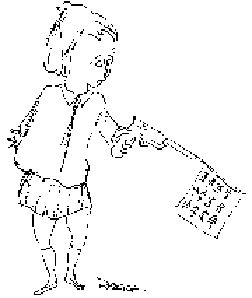 |
More Cultural Exchanges
By Henry P.
Raleigh
ART
TIMES june
2006
I
JUST KNOW there are many of you out there thirsting for further insights
into the melding of Eastern and Western cultures via film. It’s fortunate
that I have access to so many of Asia’s fine products. Well, OK, if you
wish to be mean-spirited about it, maybe most of these are pirated American
films; nonetheless, in the re-packaging of these films there is frequently
introduced an Eastern flavor and the result is a sort of cinematic McDonald’s
Egg Foo Young.
The 2005 (or 2004, depending on your source) “D.E.B.S.”
is a splendid example of how the meeting of two cultures, illegal though
it maybe, can be delightfully illuminating, if not bewildering. I assume
my copy was recorded by a film lover in Shanghai (at any rate, that’s
where the DVD came from) in one of the many theaters that feature American
films that have suffered poor runs here. It is somewhat out of focus and
fades a bit here and there — a small matter, really. “D.E.B.S.”
admittedly was not well received by critics — actually it was largely,
if not totally, ignored but, of course, that was before it had received
a new cultural infusion. As described on the disc’s cover, the film is
about four ‘creme fighting hotties with piller bodies’ — Amy, Max,
Janet and Domenique, who are recruited by the U.S. Government to capture
Lucy Diamond, the ‘readlist creminal the world has never known’.
You may find a certain resemblance to another
American film, “Charlie’s Angels” — to put it bluntly, a very close
resemblance but that’s not an important point, I think. What really makes
“D.E.B.S.” an unusual study is the translation, sub-titled in English
and impossible to delete. Now you may ask why is an English translation
needed when the actors all speak English. I don’t know — this is
one of the mysterious things about the Orient. More, the English dialogue
appears to have been translated into Chinese and then from that translated
back into English with mind-boggling consequence. You see, the sub-titles
are large and in glaring white against a black ground while the film,
including the audio, is, one might say, fuzzy. This intriguing combination
compels the viewer to read the dialogue — in fact, to be captivated by the
dialogue. How can one not feel a greater emotional impact at a sub-title
proclaiming, ‘He harmed my heart, why’ than for a flat-out ‘He dumped
me’? Isn’t it more pleasing to be greeted by ‘Good is the morning rice’
than the usual American youth’s ‘Hey’?
Rice figures prominently in the translations.
I guess this is another Asian puzzle or perhaps it underscores the importance
of this food in the East. In an instruction to one of the hotties designating
the leader of a mission (Michael) we read: ‘Michael is responsible for
the rice, second’. And later, when Amy is asked her name the sub-title
proclaims, ‘Love the rice with work school, 21 classes’. There is a suggestion
here that rice is ordered, like our angelic hierarchy, into twenty-one
levels from the very best to the kind, I imagine, my wife makes. On occasion,
the rice symbol is too deep to grasp as with the phrase, ‘What’s going
on?’ becoming ‘Love the rice on the hoof, love the rice in the bowl’.
Some common American expressions are often turned
into powerful poetic similitudes as ‘Inebriate oneself and demolish the
world’ for ‘Get smashed and drop out’. Yet, interestingly enough, our
admonition ‘Please don’t smoke’ translates as ‘Please don’t smoke’. This,
no doubt, an Americanism so outlandish that it is incapable of translation
by the Eastern mind. And no wonder given the air quality in Shanghai.
Les Deux Amour, a café named in the film, goes through a whirlwind of
images — ‘Two Lovers’ as spoken by an actor in English, back to
Chinese, and once more around to wind up as ‘Thunder is all’.
Engagingly, the F word, used with restraint in
the film — after all, the D.E.B.S. are apparently high school girls
dressed alike in plaid mini-skirts, white blouses and school ties —
is frequently tossed in gratis by the translator whenever he (or she)
is stuck for an English equivalent. Any sentence with the word rice, however,
is never so desecrated. French fries comes out ‘F_ bean curds’ (Francophobic?);
‘Good of’ is ‘OK’; ‘Poor why and so’ (frankly, I gave up on this one);
‘Etc.’ does yeoman duty for ‘Help, help, help’.
“D.E.B.S.” did enjoy the distinction of being
voted the fourth worst film of 2005 by Ebert and Roeper but, of course,
they would have seen it, if seen at all, without benefit of the Eastern
flavoring. I note that cable film channels have picked up “D.E.B.S.” so
it will make the rounds for the next decade or so. If cable was smart,
they’d throw in the Shanghai version. Cable viewers would certainly not
be offended by the imaginative use of the F word and ‘Please don’t smoke’
shows good intentions.
